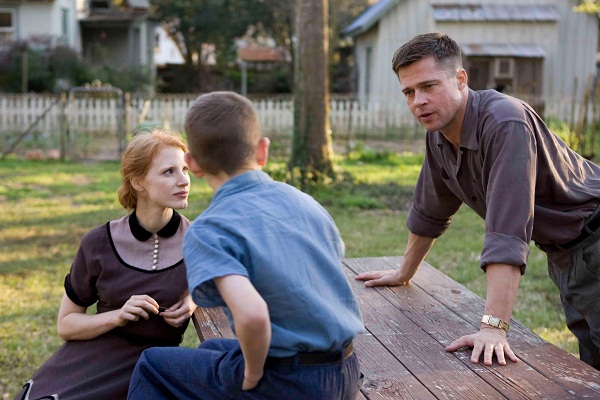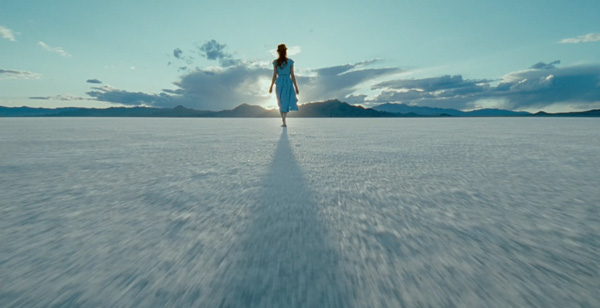Destined to send mainstream audiences fleeing from the theatre in
confusion, and to send critics into an argumentative tizzy (Is is
brilliant? Is it ambitious but masturbatory?), Terrence Malick's The
Tree of Life is an astonishing, infuriating movie. Attempting to
capture the whole range of human experience – and plenty beyond that in
sequences that depict the creation of the universe and the afterlife –
it’s easily the most distinctive film of the year technically, which has
Malick abandoning all conventional notions of editing continuity to
create an ethereal experience that has more in common with dreams and
memory than traditional screen narrative. That's going to frustrate
many, but if you prepare yourself mentally for the challenge, you'll be
rewarded with a sometimes profound, only occasionally overwrought
examination of life and its place in the universe.

The
story – what there is of it – focuses on the strained dynamic of a
family living in Waco, Texas in the 1950s. Tension comes mainly from an
overbearing father, played with conviction by Brad Pitt. He clearly
loves his three sons (most notably Jack, played briefly by Sean Penn in
flash-forwards), but is quick to loose his temper. His graceful wife
(played by 2011-it girl, Jessica Chastain), straddles both parties. To
ensure we grasp the breadth of Malick's intentions, around the 20-minute
mark we're treated to a twenty minute, CGI-assisted sequence of the
formation of the universe and – I’m not kidding – some touchy feely
dinosaurs. Things settle down afeter when the focus turns to the family
in extended, tangentially connected sequences featuring minimal dialogue
and whispered voiceovers.
The Tree of Life
has
been compared to 2001: A Space Odyssey in terms of scope, though
this is a more intimate, humanist film than Kubrick's epic vision, which
had a more intellectual, analytical bent. It also – somehow – has less
of a story; Malick's daring with his beautiful, almost musical editing
has a hypnotizing effect, but narratively there's not a lot to grab
onto.
That’s much of the point – Malick’s never been interested in
traditionally storytelling, per se. He’s more of a painter, using film
as his canvas to create his own kind of visual poetry. On those terms,
this is unquestionably the work of an iconoclastic filmmaker. In this
product-driven age, that alone should make any of his films worthy of
interest, but fortunately in this case The Tree of Life is a
success on its own terms. As scrapbookey as it sometimes feels, this is
a Malick film through and through. There’s nothing else quite like it.

Audio & Video
Outside of a theatre, Blu-ray is the only way to see this beautifully
shot movie. The format brings out the subtleties of Emmanuel Lubezki’s
low-key cinematography, and the DTS-HD Master Audio 5.1 audio track does
wonders for Alexandre Desplat’s moody score and Malick’s usual eclectic
mix of classical music (which includes Mahler, Holst and Bach, among
others).
Special Features
Malick is notoriously publicity shy and not surprisingly makes no
appearance in the 30-minute behind the scenes documentary included on
the disc,
Exploring
The Tree of
Life
(29:56, HD). Instead are interview snippets with the cast and crew, and
notable filmmakers who've been influenced by Malick's filmmaking (David
Fincher, Christopher Nolan). It's a thoughtful doco with some insight
into Malick’s unconventional working methods, appropriate for a film
with such big ideas on its mind. Also included is the
Theatrical
Trailer
(2:08, HD).